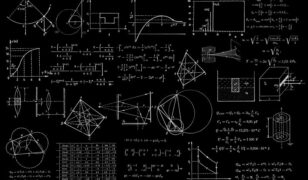DARPA launches Next Generation Social Science (NGS2) program
 The explosive growth of global digital connectivity has opened new possibilities for designing and conducting social science research. Once limited by practical constraints to experiments involving just a few dozen participants—often university students or other easily available groups—or to correlational studies of large datasets without any opportunity for determining causation, scientists can now engage thousands of diverse volunteers online and explore an expanded range of important topics and questions. If new tools and methods for harnessing virtual or alternate reality and massively distributed platforms could be developed and objectively validated, many of today’s most important and vexing challenges in social science—such as identifying the primary drivers of social cooperation, instability and resilience—might be made more tractable, with benefits for domains as broad as national security, public health, and economics.
The explosive growth of global digital connectivity has opened new possibilities for designing and conducting social science research. Once limited by practical constraints to experiments involving just a few dozen participants—often university students or other easily available groups—or to correlational studies of large datasets without any opportunity for determining causation, scientists can now engage thousands of diverse volunteers online and explore an expanded range of important topics and questions. If new tools and methods for harnessing virtual or alternate reality and massively distributed platforms could be developed and objectively validated, many of today’s most important and vexing challenges in social science—such as identifying the primary drivers of social cooperation, instability and resilience—might be made more tractable, with benefits for domains as broad as national security, public health, and economics.
To begin to assess the research opportunities provided by today’s web-connected world and advanced technologies, on March 4, DARPA launched its Next Generation Social Science (NGS2) program. The program aims to build and evaluate new methods and tools to advance rigorous, reproducible social science studies at scales necessary to develop and validate causal models of human social behaviors. The program will draw upon and build across a wide array of disciplines—including social sciences like sociology, economics, political science, anthropology, and psychology, as well as information and computer sciences, physics, biology and math.
As an initial focus, NGS2 will challenge researchers to develop and use these new tools and methods to identify causal mechanisms of “collective identity” formation—how a group of individuals becomes a unified whole, and how under certain circumstances that community breaks down into a chaotic mix of disconnected individuals.
“Social science has done a remarkable job of helping us understand ourselves as the highly social creatures we are, but the field has long acknowledged and rued some frustrating research limitations, including technical and logistical limits to experimentally studying large, representative populations and the challenges of replicating key studies to better understand the limits of our knowledge,” said Adam Russell, DARPA program manager. “As a result, it’s been difficult for social scientists to determine what variables matter most in explaining their observations of human social systems and to move from documenting correlation to identifying causation.”
On top of those methodological and analytic limitations, Russell said, the field is inherently challenged because of its subject matter: human beings, with all their complex variability and seeming unpredictability. “Physicists have joked about how much more difficult their field would be if atoms or electrons had personalities, but that’s exactly the situation faced by social scientists,” he said.
By developing and applying new methods and models to larger, more diverse, and more representative groups of individuals—such as through web-based global gaming and alternate reality platforms—NGS2 seeks to validate new tools that may empower social science in the same way that sophisticated telescopes and microscopes have helped advance astronomy and biology.
In its initial quest to understand what variables matter most when it comes to collective identity and related issues of cooperative behavior and cultural norms, NGS2 will fund researchers to enhance three core social science capabilities: predictive modeling and hypothesis generation, innovative experimental methods and platforms, and interpretation and reproducibility of research results. The program will rely solely on publicly available data as well as on results gathered from studies using gaming and other platforms in which fully informed participants have consented to be part of the research. As with all federally funded human subjects research, NGS2 protocols will be evaluated in advance by independent scientific and ethical review boards.
A Proposers Day is scheduled for March 22 in Arlington, Virginia. Details are available here: http://go.usa.gov/cwpPT. A Broad Agency Announcement describing NGS2’s goals and methods will be posted in the near future on FedBizOps.
Source: DARPA








